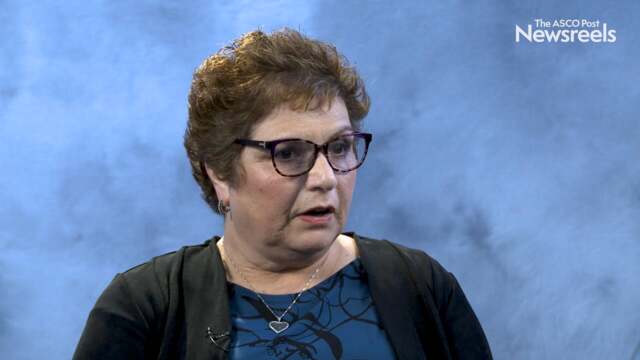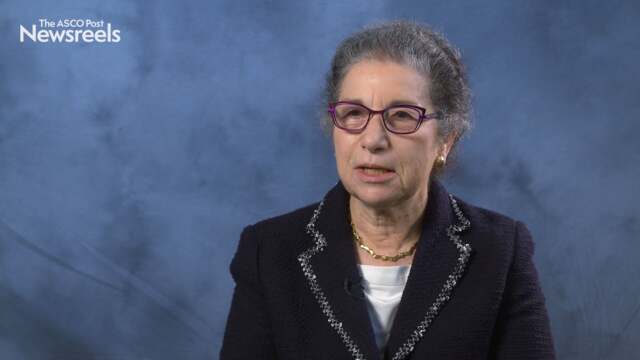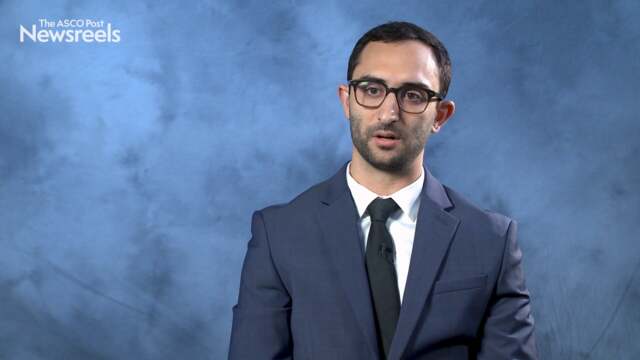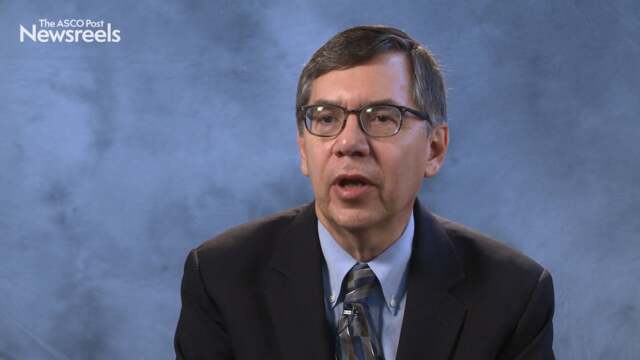Christopher J. Recklitis, PhD, MPH, on Mental Health in Cancer Survivors
2018 Cancer Survivorship Symposium: Advancing Care and Research
Christopher J. Recklitis, PhD, MPH, of Dana-Farber Cancer Institute, summarizes two key papers on mental health: suicide risk among survivors of head and neck cancer vs other types of cancer; and the fear of cancer recurrence—its associations with mental health status and individual characteristics among cancer survivors (Abstract 146).
Electra D. Paskett, PhD, of The Ohio State University Comprehensive Cancer Center, discusses study findings on whether exercise helps women with breast cancer regain arm mobility after lymph node surgery (Abstract 123).
Flora E. van Leeuwen, PhD, of the Netherlands Cancer Institute, discusses cardiovascular disease risk after treatment-induced primary ovarian insufficiency in female survivors of Hodgkin lymphoma (Abstract 114).
Patricia A. Ganz, MD, of the University of California, Los Angeles, and this year’s recipient of the Ellen Stovall Award for Advancement of Cancer Survivorship Care, discusses her 30-year-long career researching and advocating for survivors and quality care.
David Baraghoshi, of the Huntsman Cancer Institute at the University of Utah, discusses an assessment of cardiovascular risk more than 10 years after diagnosis for colorectal cancer survivors compared with a cancer-free general population cohort (Abstract 113).
Paul B. Jacobsen, PhD, of the National Cancer Institute, discusses his evaluation of whether survivorship care plans have a positive impact on health outcomes and health-care delivery for cancer survivors, in both the long and short term (Abstract 2).





